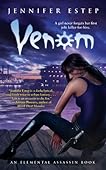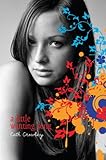 The Glass Lake
The Glass Lake by
Maeve Binchy
My rating:
3 of 5 stars
2.5/3 stars
Well, this should at least serve as an admonition to all women on how a MAN should never ever be the fulcrum around which a woman's life rotates, making him the centre of her universe.
The story - my first Maeve Binchy book ever - is set in the 50s and revolves around the lives of various families in the small village of Lough Glass, Ireland, during a span of about 10 years. Among this rather extensive set of characters, stars Helen McMahon alias Lena Gray, a desperate woman whose actions, bad judgement and wrong choices in life reverberate throughout the existence of so many people, and with rather unsettling outcomes.
It is basically a book which deals with the concept of MISTAKE and how your actions may or may not reflect on other people's lives and with which consequences.
This, per se, is a rather interesting theme to be treated in a novel, if not for the fact the the gloomy approach and the disastrous ways in which the characters messed up their lives didn't make this book relaxing or enjoyable at any time. It would be actually pretty safe to say that this book is exhausting, emotionally and physically. First, it is well above 700 pages and the action is so slow at times that I felt like I was trying to slowly make my way through quicksand. You won't fall asleep, I swear, and you won't be bored by long descriptions about the nuances of color of the lake in November or on the types of plants growing around it, but you will feel the progress of narration so slow and uneventful, so much so that, if not for one cardinal point which I will explain below, it would have been enough to make me shut the book at page 50.
Helen/Lena.
She is, without a doubt, the most conflicted character of the book. Throughout the story I couldn't help but despise her for her weaknesses and for what she brought upon herself and her family because of her stupidity but, at the same time, I couldn't help but admire her.
And this is where some things about her actually don't add up. I was baffled by how she seems to be two persons. First we meet a ghost of a woman who once was, then we meet the monster who did what no woman on her right mind would ever do and, then we meet the stakhanovist working woman and eventually the remorseful mother. So, what's it going to be? Who is Lena? How can a woman who seems to be able to organize everybody's lives so perfectly and be the catalyst to their happiness, simultaneously be a wreck and helpless about her own life? How can she live her life almost as vegetable for 12 years and then, because of/thanks to a man, run away and become an
entrepreneur and go on as if her past never happened? How am I supposed to feel sympathy for a woman who abandoned her children (and let's not forget that even if she makes contact with Kit, she never does with Emmet)? I just can't. I can admire her qualities and her skills for building a career for herself out of nothing, but I cannot justify or forget her horrible actions and selfishness.
As you sow, so you shall reap. I think Helen/Lena even collected too much for what she did.
And last but not least, the reasons for Lena's love for Louis were extra feeble, if not inexistent. WHY does she love him? Because he's good-looking? Hardly. You can't base your love on appearances, take a look at the celebrities. That is left unanswered.
Amazingly enough, very few of the rest of the characters were likable. Even Kit, Lena's daughter, makes an enormous mistake early in the book which changes everything. And I mean EVERYTHING. Clio, Emmet, Martin, Ivy, Kevin... they all love in the wrong way, forcing love on the one hand, or confusing it with lust on the other. This book is en emotional disaster, slowly developing in front of your eyes.
The only ONE character whom I found remotely likable, Sister Madeleine, makes a mistake, gets taken out of the book in 2 pages, never to return again. We never discover her past, her background. A bit wasted, if you ask me.
Finally, Kit and Stevie. That relationship smells like a week old dead fish. Kit the virtuous manages to reform the village rake? Mh. Sorry, but life taught me that a leopard cannot change its spots. There might be exceptions but I thought it was all very abrupt, there was not enough development of the matter to justify such undying love on both parts.
Ah, did I mention that the story is incredibly predictable?
On to the good parts:
I am still marveling at the writer's ability to write a 700 page book with no descriptions. THIS is the reason why, earlier on, I said you won't fall asleep. This book is 80% dialogue, no tedious long paragraphs about the crickets or whatever. And it totally works. I was there, in Lough Glass, with the characters, taking walks around the lake or on the streets of Dublin, picturing everything. Picturing something the author actually barely describes. So either I have a fervent imagination or there must be some skill on the author's part.
And to conclude, this book gets 2 1/2, barely 3 stars from me because of my involvement in the story. Even though I hated half the characters, thought the plot was predictable and the image of woman portrayed in these pages is so terribly wrong on so many levels, I could not close the book and set it aside. The plot is engaging and once I read the last page, I really felt emotionally drained. That alone must count for something.
Thanks to Maja and Flannery for suggesting this as my first Maeve Binchy book. Now I know you hate me. :D
View all my reviews
 Imaginary Girls by Nova Ren Suma
Imaginary Girls by Nova Ren Suma









